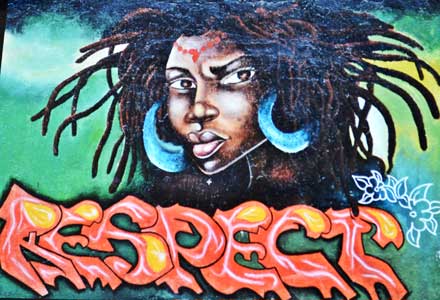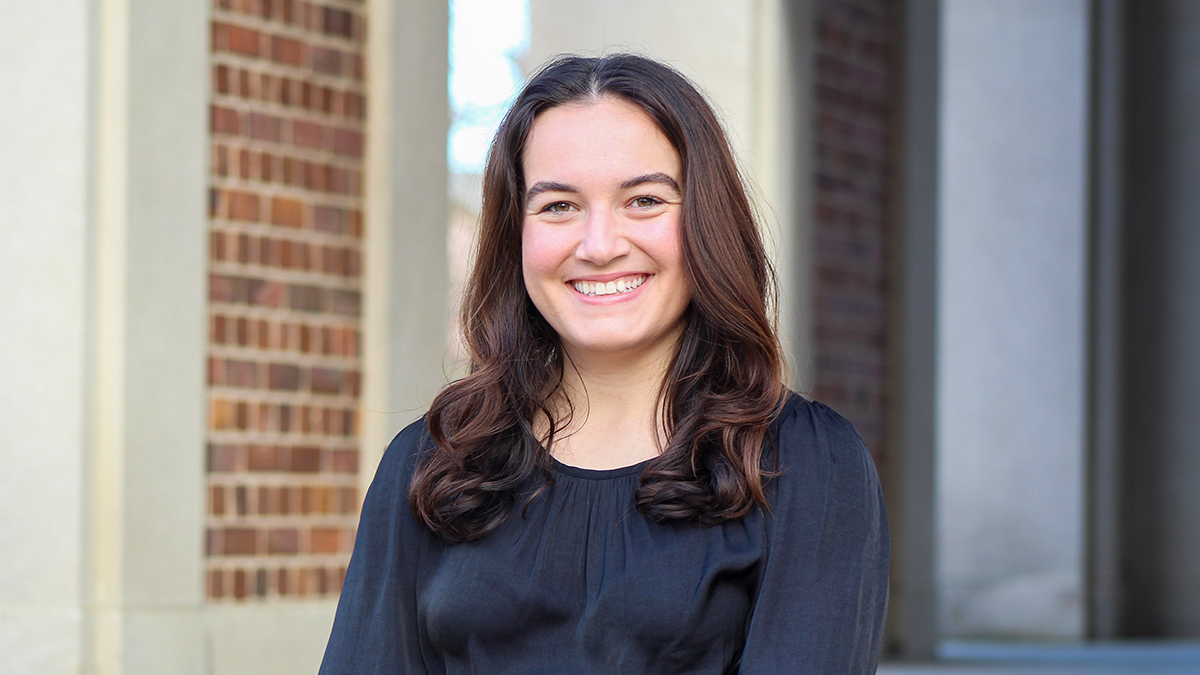Art as weapon in war-torn Congo
Chérie Rivers Ndaliko trained as a concert pianist but has studied everything from literature to psychology to education.

When her mother learned that Chérie Rivers Ndaliko was thinking of graduate school, she did what she always had: she created a spreadsheet of the best schools.
“I mean, when I was a kid, she went through the entire phone book to choose my elementary school,” which began with a W, Ndaliko said.
The name at the top of the latest list started with an H. “I said, ‘Mother, c’mon. You can’t be serious.’”
But her mother had done her homework: Harvard was not at the top of the list because of its prestige, her mother insisted. “She said, ‘This place will help you find the answers you are looking for.’”
Ndaliko was skeptical. Not only that she could get in, but that Harvard was the place to study Africa from her social activism perspective.
It took her 10 years – at 10 different institutions on three continents – to get her bachelor’s degree. She joined Carolina’s Department of Music as an assistant professor in 2012.
Ndaliko began at the San Francisco Conservatory of Music, where she trained as a concert pianist, then set off to Europe and Africa and back to study everything from literature to psychology to education. Her last stop was the Berklee College of Music, where she finally picked up her degree and began scoring socially conscious films.
Her problem was not aimlessness, but conviction. She always had a vision for what she wanted to do in the world and believed she could bring about change, given all the right tools. It was a matter of acquiring them.
“To my utter shock, Harvard not only accepted my application, but gave me a Presidential Fellowship,” she said. “And they said, ‘Whatever it is you are doing, come do it here.’”
California dreaming
She grew up on the northern fringes of San Francisco, in an area where most people were well educated, liberal and white.
There was no TV in the house, only musical instruments, books and a backyard garden. Ndaliko started playing the piano when she was 3, and later, a series of other instruments.
“My Dad and I were the only black people where I grew up, and everyone accepted and loved us,” she said. “But it was never the place I knew I belonged.”
Her father grew up in southern Louisiana, one of 11 children in a family that believed in education as the pathway to wherever they needed to go.
That idea took him to graduate school at Columbia University, then to California where he spent 30 years in the Department of Corrections developing programs that placed value on redemption and rehabilitation.
Her parents met when her mother was a student at the University of California, Berkeley and volunteered with at-risk children in Oakland. In the racial climate of the times, Ndaliko’s maternal grandparents disowned their daughter when she married a black man.
“Growing up in a mixed family, with aunts and uncles from Africa, grandparents from Denmark and an African-American father, I had so many questions about who my people were supposed to be,” Ndaliko said. “But over time, it gave me a perspective that I really came to appreciate because I really do feel a deep human connection to many, many different places.”
‘A meeting of the minds’
Because she grew up without TV or movies, Ndaliko said, she was drawn to film and its power to shape – and change – minds. But she was also troubled by the news accounts that had painted a false picture of Africa in the Western imagination as a dire, homogenous place perpetually in crisis.
As a film scorer, Ndaliko worked with African-American filmmakers who sought to counterbalance that caricature by making positive movies about Africa. But these bothered her just as much since they often created a mythic, utopian Africa that was equally unreal.
“It is not enough to say millions of people in Africa are living in disaster, but neither is it enough to say millions of people in Africa are doing really well,” Ndaliko said. “To see Africa as it really is, you have to understand that these opposing realities – crisis and normalcy – do not cancel each other out. They exist side by side as part of a complex, larger truth.”
Read more from the University Gazette.




